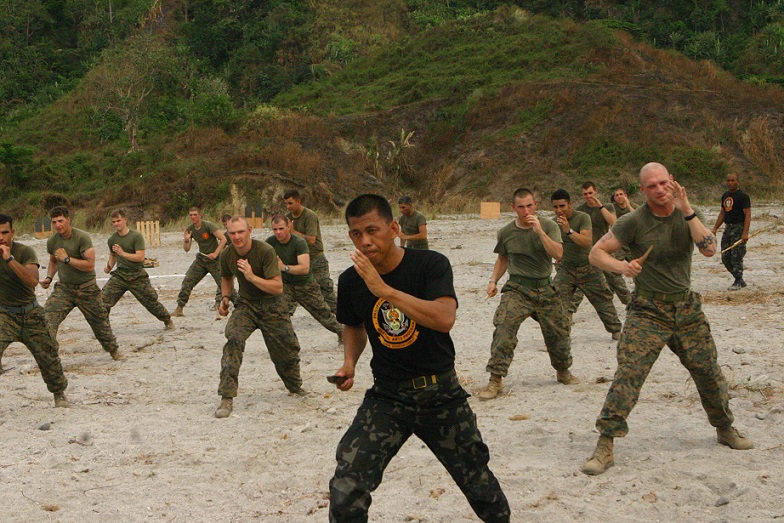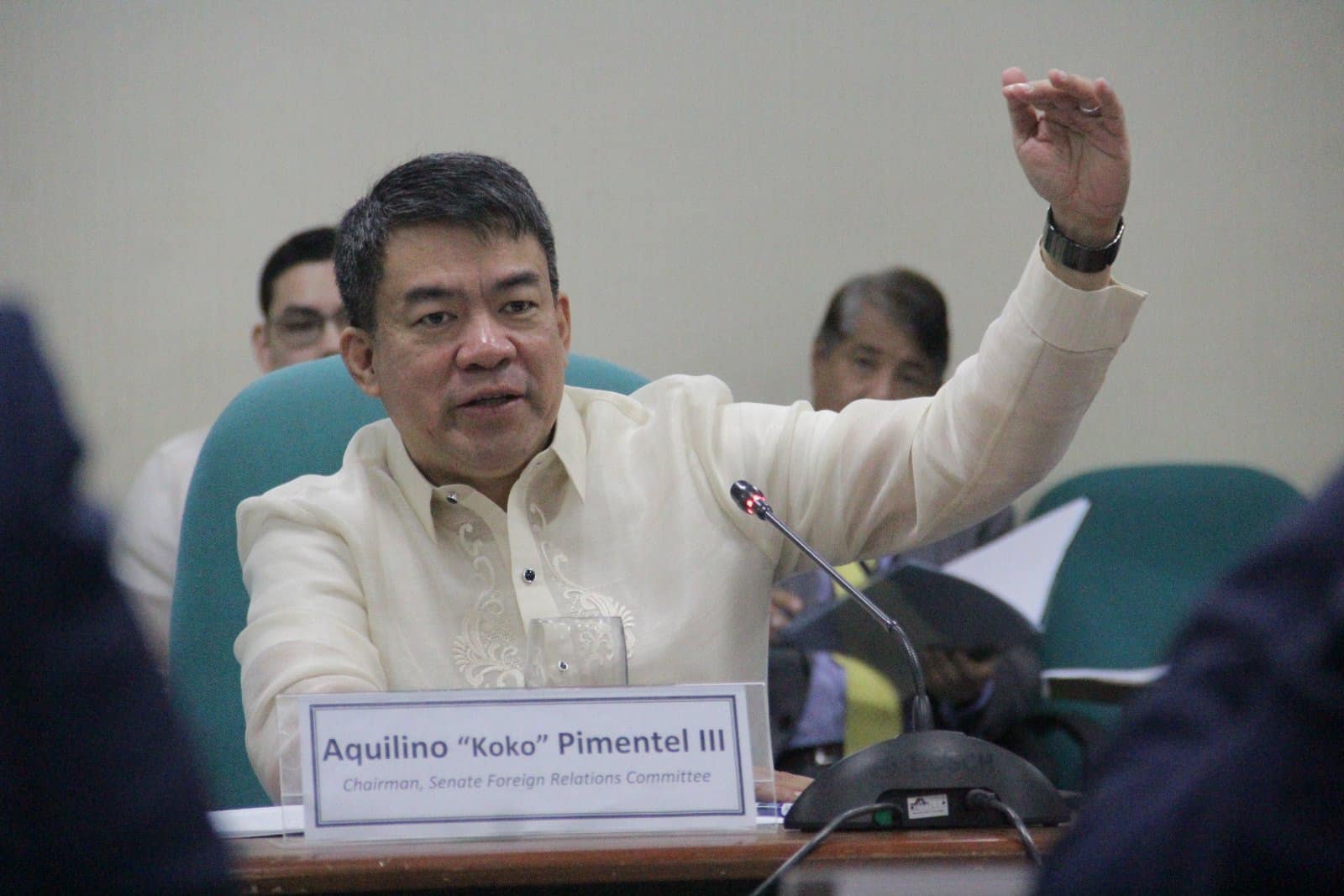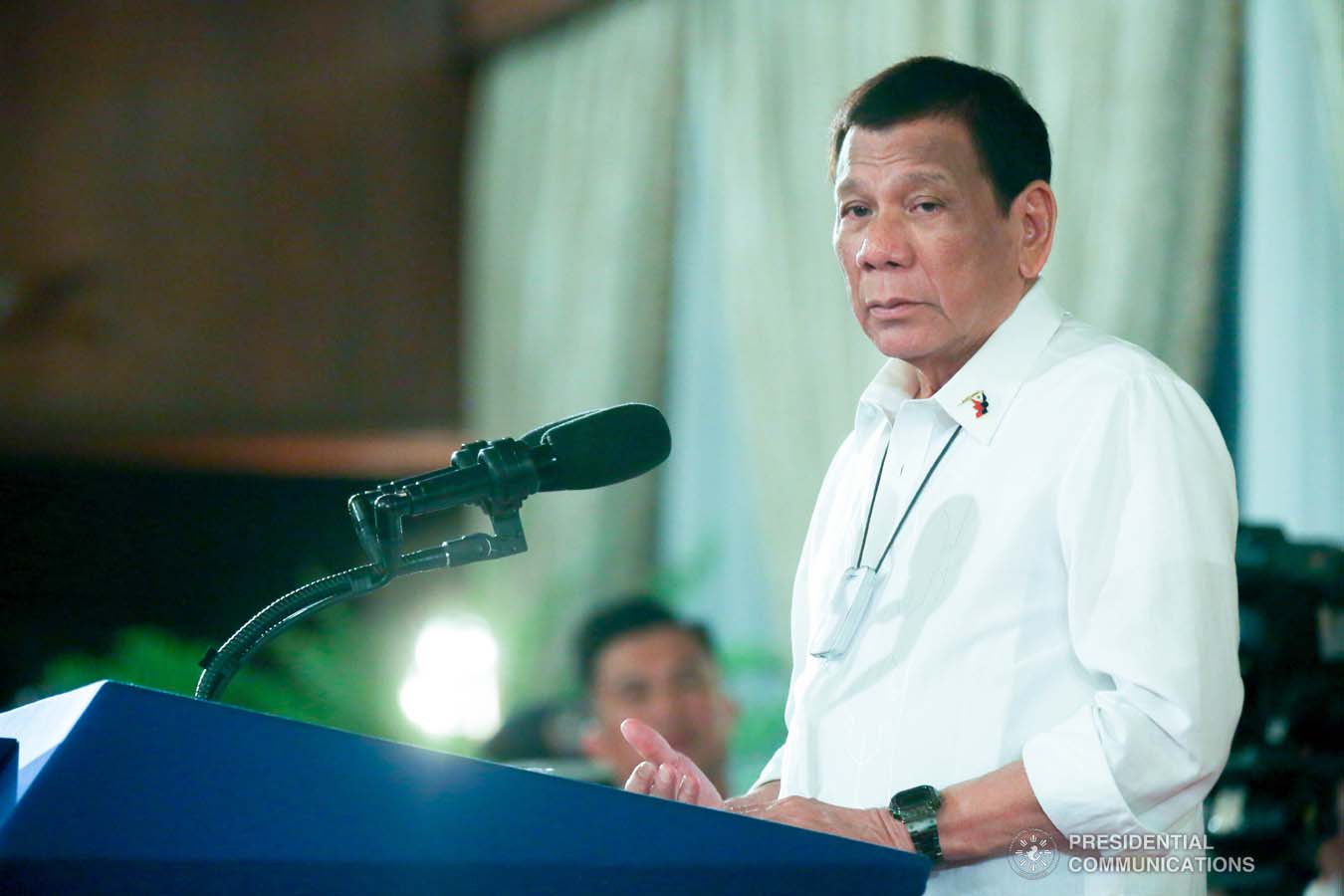Anytime now, we expect the Senate as a body to question before the Supreme Court the unilateral termination by President Rodrigo Roa Duterte of our obligations under the Visiting Forces Agreement (VFA) with the United States of America.
What’s doubly interesting is that Senate President Vicente “Tito” Sotto III himself is leading the Upper House in the move, following a vote taken on the question early this week, with a majority of 12 senators voting to do so, seven senators abstaining, and one “none vote” (courtesy ofmy kasimanwa from Gensan, Emmanuel Pacquaio, havingarrived late).
His is a 180-degree turn from his earlier position on a similar question – President Duterte’s decision to abrogate without Senate concurrence our obligations under the Rome Statute that established the International Criminal Court,in the wake of a probe launched by the international tribunal’s Chief Prosecutor, Ms., Fatou Bensouda, over his deadly drug war.
Well, Sotto does have a solid excuse for his about face.
In the case of the ICC, he had merely expressed a personal position. Now he has to lead the charge for the Senate as a body, else the Upper House loses its relevance. Nothing could be more statesmanlike than that.
That earlier question remains pending before the Supreme Court, and in the interest of transparency, allow me to disclose that I am lead counsel for one set of petitioners in the proceeding, the Philippine Coalition for the International Criminal Court.
Well to be sure, President Duterte and his American counterpart, President Donald Trump, exhibit the same temperament towards international obligations that are not to their liking. Consider the easy manner in which Trump walked awayfrom the multi-party Nuclear Deal with Iran signed by his predecessor, Barack Obama, leaving the other parties – France, Germany, China, and Russia, surprised and dismayed by no small measure.
.
But to be fair, he did so because, to begin with, Obama had treated the deal as a political commitment rather than an international agreement, because of fierce bi-partisan opposition in the two houses of the US Congress.
Trump also abrogated US obligations under the Paris Climate Agreement, a treaty to which the US became a party by the US Senate’s advice and consent. The US President had said the agreement, which called for further reductions on carbon emissions around the world, blocked the growth of the American economy.
The two leaders actually buck the international trend in which legislatures around the world increasingly assert their shared role in treaty-making and treaty un-making, if a study collated in the 2019 Oxford Handbook on Comparative Foreign Laws is to be believed.
Ironically, they also respectively lead two countries whose constitutions require a supermajority vote of their respective Upper Houses to bind their governments to a treaty – if anything, an indication of the key role their constitutions places on the legislature in foreign relations.
But I expect the Office of the Solicitor General, Duterte’s able defender, to raise largely the same arguments it had made in the ICC case. That is, that it is the president’s sole prerogative to determine the good and bad about our international obligations, he being the country’s chief architect of foreign policy.
A plausible argument for unilateral withdrawal
Secretary General Jose Calida may also borrow from one novel and plausible argument, one broached by former presidential spokesman Harry Roque, who taught constitutional law and international law for a long time at the University of the Philippines.
Roque’s argument rests on the distinction Philippine courts make between a treaty and an executive agreement. A treaty, pursuant to the treaty clause of the 1987 Charter, Section 21, Article VII, needs the concurrence of two thirds of the Senate to become binding, in what has been called the “Doctrine of Transformation.”
An executive agreement, meanwhile, does not require Senate concurrence, as, according to jurisprudence, it merely implements an existing treaty or continues an already established policy.
To be clear, we’re speaking of the 1998 VFA concurred in by the Senate, which is distinct and separate from three subsequent documents signed between the two countries: first, the counterpart agreement for Filipinos on official training or visits in the United State of America; second, the terms of reference for the annual large-scale Balikatan war games between Philippine and US forces (affirmed in Lim v Executive Secretary, 2002) , and third, the exchange of notes between the two countries on the facility where US Marine Lance Corporal Joseph Scott Pemberton will serve the sentence imposed on him by a Philippine court for the killing of Filipino transgender Jennifer Laude in 2014 (modified by the Supreme Court in Nicholas v Executive Secretary, 2009).
These three later documents are in the nature of executive agreements.
In the Nicholas case (which Roque and I had also litigated), the Supreme Court also made short-shrift of the reinforced argument against the unequal treatment given by the Americans to the VFA.
This is because, so said the High Court, the VFA draws its existence from the 1951 MDT, “which has been ratified and concurred in by both the Philippine Senate and the US Senate.”
Roque draws from the Supreme Court’s holding in the 2014Enhanced Defense Cooperation Agreement (EDCA)case – where we had also served as counsel for one set of petitioners.
In the consolidated cases of Saguisag v Ochoa, the Supreme Court held that the EDCA is valid and constitutional, insofar as it is an executive agreement of a piece with the VFA in implementing the terms and provisions of the 1951 Mutual Defense Treaty between the Philippines and the United States of America.
This is the first time that the High Court actually pronounced the VFA as merely an implementing document of the 1951 Philippine-US MDT.
Thus, says Roque, regardless of the form that the VFA itself has taken, it is by the High Court’s pronouncement, on the same level asan executive agreement implementing its mother source, the 1951 Philippine-US MDT. In that case, the President may choose to terminate it without Senate concurrence.
Moreover, there’s also the extra-textual fact that the Americans themselves don’t treat the VFA as a treaty. Instead, they have classed it with “congressional-executive agreements” that do not need the advice and consent of the US Senate.
A textualist counter-argument
A counter-argument is that the VFA must be viewed solely from the lenses of the constitution itself. And according to this textualist approach, the Supreme Court, in the 2000 case of Bayan Muna v Executive Secretary, had already squarely held that regardless of American treatment, the VFA is a binding treaty, having undergone transformation as law of the land by operation of the treaty clause of the 1987 Charter.
This counterargument is also consistent with treaty making and treaty-unmakingas a shared responsibility, and as part of the mechanism of checks and balances under the doctrine of separation of powers outlined in the 1987 Charter, according to the Saguisag case.
Here, the Supreme Courtacknowledged that indeed, it is solely within the President’s constitutional power to decide whether to bind the Philippines to international obligations through an executive agreement or a treaty.
“This power, however, “according tothe Supreme Court, speaking through then Chief Justice Maria Lourdes Aranal Sereno, “does not crystallize into absolute discretion to craft whatever instrument the Chief Executive so desires.”
That power is now balanced by the role played by the Upper House “in ensuring that treaties or international agreements the President enters into, as contemplated in Section 21 of Article VII of the Constitution, obtain the approval of two-thirds of its members.” By logical implication – and against arguments from silence –that limitation also applies to the Chief Executive’s decision to terminate or withdraw from a treaty obligation.
Former Akbayan party-list Rep. Walden Bello, by no means a Duterte admirer, has actually lauded the President’s decision to abrogate the VFA – an agreement that critics like him have always considered to be lopsided, and meant only to perpetuate American hegemony in the region and nothing else. Bello may very well be correct about the VFA.
The issue, however, seems to be more thana procedural question; i.e., whether Duterte may do it legally without Senate concurrence, for the question of procedure itself has also become the very measure of our constitutional system’s effectiveness to curb a presidential “decisionism” disdainful of republican checks and balances.
- Romel Bagares, an alumnus of the University of the Philippines and the Vrije Universiteit Amsterdam, teaches public international law at the Lyceum Philippines University College of Law.



